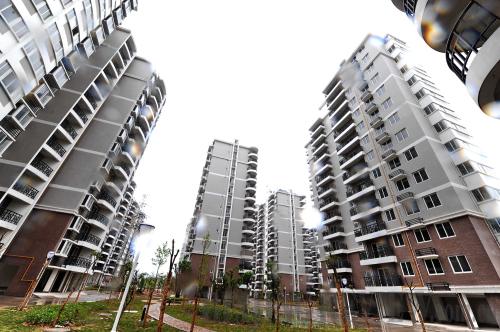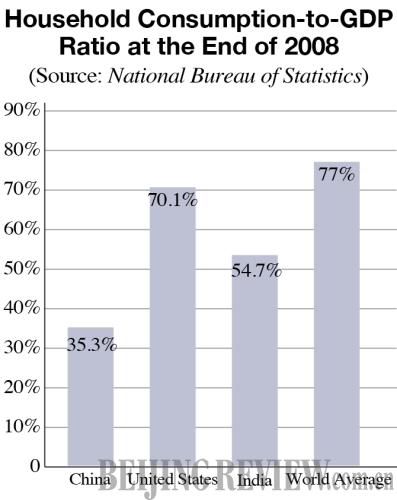|
 |
|
MEETING HOUSING NEEDS: The Shengjing Huangshan community in Fuzhou City, Fujian Province completed earlier this year provides cheap rental homes for the city’s poor (ZHANG GUOJUN) |

China will adhere to a consistent and stable economic strategy, putting in place a proactive fiscal policy and an accommodative monetary policy for the 2010 fiscal year—the macro-economic course mapped out during China's Central Economic Work Conference, the country's top-level convention, held on December 5-7 in Beijing.
The government will also ensure steady economic development with concrete and flexible measures largely in line with unfolding situations.
The annual year-end conference aims to set the tune for macro-economic policies for the coming year. Before convening, top Chinese policymakers spent months on economic investigations nationwide.
Amid the significant recovery of the Chinese economy after an unexpected slowdown in the wake of the financial crisis, this year's conference holds the keys to underpinning the hard fought upward momentum and has far-reaching implications for sustained economic growth.
Economists pointed out the Chinese economy will draw strength from three major factors: continuous economic stimulus; economic rebalancing; and boosting domestic consumption.
Continuous economic stimulus
"The government's commitment to fiscal expansion and monetary stimulus are set to inject steam into the economy and uphold market confidence for a prolonged rebound," Wang Tongsan, Director of the Institute of Quantitative and Technical Economics at the Chinese Academy of Social Sciences, told Beijing Review.
To stem the ripple effects from the financial crisis in 2008, the Chinese Government engaged in a massive investment spree with a flood of bank loans. From January to October this year, the Central Government's allocated investments totaled almost 1 trillion yuan ($146.3 billion), while newly added renminbi loans amounted to a staggering 8.92 trillion yuan ($1.3 trillion). The effectiveness of the powerful countermeasures allowed China to be one of the first countries to ride out the financial storm.
The world economy as a whole has yet to fully stabilize, as fluctuations in the major economies of the United States, Europe and Japan and aftershocks from the recent Dubai World debt crisis threaten to wipe out any financial progress made within the last year, Wang said.
Even with its significant gains, the Chinese economic recovery has yet to establish itself on solid financial ground as a number of economic and social bottlenecks still need to be properly addressed, Wang said. The 4-trillion yuan ($585 billion) stimulus package, for instance, requires a less hostile monetary environment to finance its massive infrastructure projects.
Precedence, therefore, must be given to reinforcing the economic upturn and refraining from an early stimulus withdrawal, Wang said.
"After experiencing this substantial turnaround, China will face a much different economic landscape in 2010, so it's imperative to align any future policies with the changing situations of the moment," Wang said.
To ensure the upward trend of the Chinese economy, a steady flow of monetary supplies must be maintained, Wang said. New renminbi loans in 2010 should be kept around 60-80 percent compared with figures from 2009. Instead of raising interest rates and reserve requirements nationally, it would be more rational to initiate open market operations to adjust market liquidity.
Additional measures should focus on improving the structures of bank loans and extending assistance to the most deprived business sectors and industries.
| 